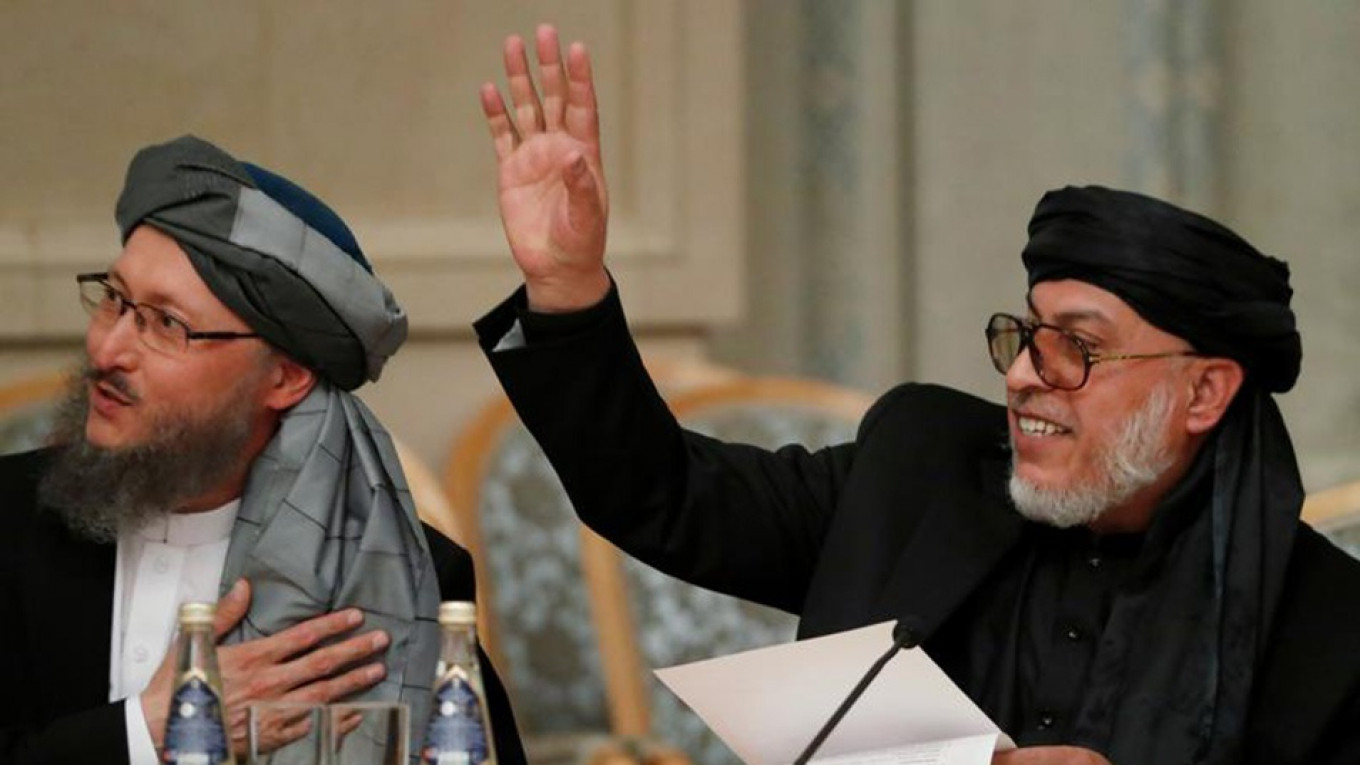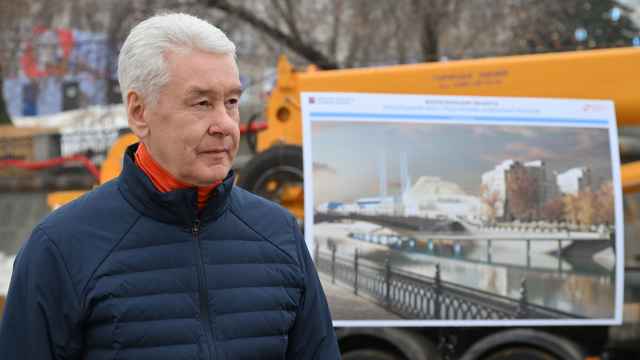Senior Afghan officials warned on Monday that talks this week between Taliban militants and opposition politicians, including former President Hamid Karzai, betrayed the principles of democracy and Afghanistan's best interests.
The talks, starting on Tuesday in Moscow, come 10 days after peace negotiations between the United States and the Taliban in Qatar ended with signs of progress towards the withdrawal of thousands of foreign troops from Afghanistan and an end to more than 17 years of war.
The push for peace comes as the Taliban, ousted by U.S.-led forces in 2001, have staged near-daily attacks and are in control of or contesting districts across nearly half the country.
Moscow had decided to snub Afghan government officials, sources said, to ensure the participation of the Taliban who refuse to hold talks with representatives of Western-backed President Ashraf Ghani, branding them puppets of the United States.
Fazel Fazly, chief adviser to Ghani, expressed "regret" that politicians who previously led Afghanistan's democratic transition were to meet the Taliban.
"[They] are ready to bypass these principles and move towards [the principles'] destruction due to differences and being away from power," Fazly said in a tweet.
Abdullah Abdullah, the government's chief executive, said the Taliban would have achieved their objective once foreign troops withdrew, ending the need for talks.
The United States has some 14,000 troops in Afghanistan as part of the NATO-led Resolute Support mission and a separate counter-terrorism effort largely directed at groups such as al Qaeda and Islamic State.
Some 8,000 troops from 38 other countries are also involved in Resolute Support.
Also shut out of the U.S. discussions at the insistence of the Taliban, the Afghan government is alarmed at the prospect of the Taliban forcing their way into an interim government.
The Moscow talks will be closely watched by Western diplomats, some of whom fear they could complicate the U.S. talks with the Taliban led by Washington's special peace envoy, Zalmay Khalilzad, while potentially isolating Ghani.
While Russian officials are expected to remain in the background, the Moscow talks highlight the growing role Russia is playing in Afghanistan.
Karzai confirmed his attendance at the talks, saying in a tweet he would carry a message of "peace, unity sovereignty and progress for all of us."
Karzai replaced the Taliban's hardline Islamist rule as Afghanistan's first democratically elected leader after the Islamists were ousted by U.S.-backed Afghan forces, supported by U.S. air power.
Another delegate to the Moscow sessions, Mohammad Hanif Atmar, an influential former national security adviser to Ghani, said they would emphasize the need to include the government in future intra-Afghan discussions.
But he urged the government not to look at the peace process from a "narrow governmental window."
Taliban spokesman Zabhullah Mujahid said the conference was about "opening channels to reach an understanding with non-government Afghan political groups."
He said the movement wanted to explain its policies towards an "enduring peace in the homeland and establishment of an intra-Afghan Islamic system of governance."
A Message from The Moscow Times:
Dear readers,
We are facing unprecedented challenges. Russia's Prosecutor General's Office has designated The Moscow Times as an "undesirable" organization, criminalizing our work and putting our staff at risk of prosecution. This follows our earlier unjust labeling as a "foreign agent."
These actions are direct attempts to silence independent journalism in Russia. The authorities claim our work "discredits the decisions of the Russian leadership." We see things differently: we strive to provide accurate, unbiased reporting on Russia.
We, the journalists of The Moscow Times, refuse to be silenced. But to continue our work, we need your help.
Your support, no matter how small, makes a world of difference. If you can, please support us monthly starting from just $2. It's quick to set up, and every contribution makes a significant impact.
By supporting The Moscow Times, you're defending open, independent journalism in the face of repression. Thank you for standing with us.
Remind me later.







